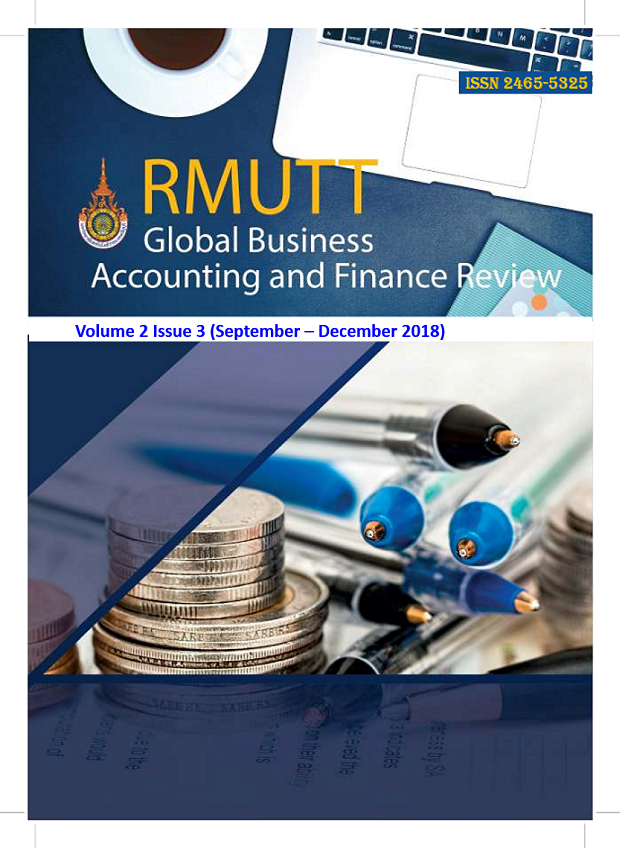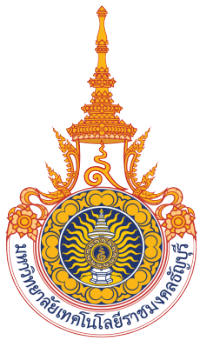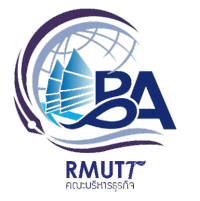EFFECTS OF DIFFERENT GENERATIONS OF EMPLOYEES IN AN ORGANIZATION ON ORGANIZATIONAL COMMITMENT
Keywords:
Generation, Organizational CommitmentAbstract
Corporate executives, at present, should manage their work and responsibilities for each position, including benefits and welfare to meet the needs of their employees in each generation; Generation X, Generation Y and Generation Z. Organizational supports in terms of performance, duties, responsibilities and the environment of the workplace enhance the commitment of the employees, their passion and pride at work. Employees tend to devote themselves to make a good and effective performance without any idea of resignation and applying to other organizations. Therefore, executives should build the commitment in three generations: 1) Generation X employees need organizational support in order to be accepted, respected and honored by the organization. 2 ) Generation Y employees need organizational support in order to be recognized in the
organization and opportunities to develop their skills relating to their corporate responsibilities. In addition, flexibility and balance between their working and private life hours, teamwork and beneficiary activities to society and the environment are also needed. 3)Generation Z require an opportunity to share their opinions. Works regarding design and creativity with online support system are needed. They prefer to be considered and assessed by the quality of work than seniority system. Moreover, the atmosphere at workplace and a good environment are necessary for them.
References
Anuratpanich, L. (2015). Generation Y in 2015. Bangkok: Thai Effects Studio.
Atthanit, R. (2011). Employee Engagement in the Organization = Employee engagement. Bangkok: HR Center.
Chamnongvej, P. (2013). Who is Gen Y people? Why does the organization need to emphasize?. Retrieved from https://www.bloggang.com/mainblog.php?id=aiaoun&month=21-11-2013&group=2&gblog=16
Chatzkel, J. (2003). The collapse of Enronand the role of intellectual capital. Journal of Intellectual Capital, 4(2), 127-143, https://doi.org/10.1108/14691930310472767.
Chitsawang, N. (2017). Generation Y Employee Management. Songkla: Gotoknow.
Decharin, P. (2008). Strategic planning. Bangkok: Office of the Public Sector Development Commission.
Dechawatanapaisal,D. (2009). Recognition of Generation Y features and motivation in work: The view between various generation in the organization. Chulalongkorn Business Review, 31(121), 1-25.
Dechawatanapaisal,D., Sookphaya, K., Nuanlak, C., & Pluemboon, C. (2014) Generation, X and Generation Y education in view of their own characteristics and expectations for other generation features. Chulalongkorn Business Review. 36(141), 1-17.
Ferincz, A., Hortovanyi, L., Szabó, R.Z., & Taródy, F. T. (2010). Changes in the way of work: Generation “Z” at the labour market.
Glass, A. (2007). Understanding generational differences for competitive success. Industrial and commercial training, 39(2), 98-103.
Howe, N., & Strauss, W. (2007). The next 20 years: how customer and workforce attitudes will evolve. Harvard business review, 85(7-8), 41-52.
Limweeraphan, S. (2007). Employee Engagement: a case study of rayong purifier PLC. Master of Science, National Institute of Development Administration. [in Thai].
Lussier, RN. & Achua, C.F. (2001). Leadership. Ohio: South-western College Publishing: 74-76.
Macky, K., Gardner, D., & Forsyth, S. (2008). Generational differences at work: Introduction and overview. Journal of Managerial Psychology, 23(8), 857-861.
Manakit, N. (2011). Organization engagement of 3 generations working group: a case study of the primary school teachers working under of Nakhonpathom provincial primary education, region 1. Master of business administration, Kasetsart University. [in Thai]
Maneerat, S. (2015, May). What is Organizational Commitment? Column 5, Prachachart, Bangkok.
Mongkoldeekakul, T. (2011). The role of social transfer in the organization and future-oriented selfcontrol psychology related to organizational commitment and good organizational membership behavior of professional nurses. Master's thesis, National Institute of Development Administration.
Nguanda, M. (2013). The decision to buy diamonds of Generation X and Y consumers in Bangkok. Thammasart University.
Puntapalangkul, P. (2018). 0nline: Prakal’s Blog Think People Consulting Co., Ltd.pkppan@gmail.com.
Robbins, S.P., & Judge, T.A. (2017). Organizational Behavior. 14th ed. NJ: Pearson Education.
Rossarin Gray et al.. (2016). Quality of Life among Employed Population by Generations. Bangkok: Rongpim Duentula Company Limited.
Sadangharn, P. (2008). Maintaining good people in the organization. Executive Journal Brupa University. 33(3).
Sangsai, A. (2015). The Effect of Organization Factors and Perceived Organizational Support on Generation-Y Employees’ commitment: A Case Study of Asian Stanley International Co., Ltd. Master of Business Administration, Rajamangala University of Technology Thanyaburi.
Takatoshi, I. (2004). The Yen and the Japanese Economy. Graduate School of Economics, University of Tokyo, 171-196.
Tantithamrongwut et al. (2016). Multiple mediation effect of organizational commitment, perceived organizational justice, and job satifaction in transmitting servant leadership to organizational citizenship behavior of employees private university. Ph.D. Social Science Journal, 6(2).
Thai Health Project. (2016). Get to know other “Generations” (Page 10-11). Work (Page 14-15). Thai Health 2016, Nakorn Pathom: Institute for Population and Social Research Mahidol University.
Thanomkaew, S., Sutataphong, K., & Leeben, Y. (2016). Motivation strategies for each age of employees in the organization. Journal of Modern Management, 14 (1) 11-16.
Voraakom, V.(2014). 5 Generation C site Business Bangkok. 7 July 2014.
Weerapatrungroj, T. (2559). The Difference of Generation X, Y and Z in Bangkok and Online shopping behavior, July 2016, Nation University.
Yodwisitsak, K. (2014). Building up Employee Engagement through Happy Workplace Concept in GenY Employees. Nakorn Srithammarat: Walailak University.
Yooprot, T. (2013). Work values that affect organizational membership behavior of Generation. Master of Business Administration Thesis Human Resource Management and Organization Faculty of Commerce and Accountancy, Thammasat University.









